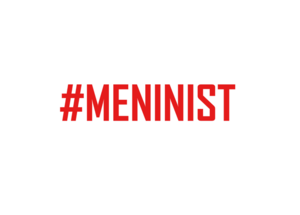What drives teenage boys away from feminism?
I for one do not believe that teenage boys just wake up in the morning and say to themselves: “I hate women, and they don’t deserve rights.” No, the descent into alienation from feminism is a much longer slow moving process, and those who fall down this path are frequently driven away for understandable reasons. Now, we could dismiss these boys’ beliefs as stemming from sexual frustration, but that’s too simple, and gives boys too little credit. Boys are responding to their environment. These boys grow up being told they’re inherently sexist and watch as feminism tackles minor issues.
One of the main problems with feminist discourse today is that all issues tend to be treated as equally problematic. Some of the issues are minor and petty, for example, this commercial about how girls need more emoji representation, or the recent hullabaloo about how workplace air conditioners are a sexist conspiracy. These issues often receive just as much attention and outrage as domestic abuse or sexual assault. This leaves boys feeling as though feminists are nit-picking, or that there are no “real problems” for feminists to deal with in this day and age. When feminists treat minor issues like a big deal, the larger systemic problems that they are symptoms of (such as the representation of women in media), the problems that are very much worth getting upset about, get lost in the mix.
Another problem is people treating the feminist movement as if it were above criticism, as though anyone who opposes any part of it is just being sexist. Take for example the case of Anita Sarkeesian: A third wave feminist activist who attempted to point out sexism in video games. Now, the harassment and threats she faced for making videos criticizing video games were inexcusable and largely sexist. That said, her critiques of the video game industry were factually inaccurate and she likely stole footage from other channels. So when the majority of male (and female) video gamers watched the videos, they disagreed with her. When they voiced that disagreement, it was met with accusations of sexism. What ends up happening in situations like this is a teenage boy who knows he’s not wrong, is immediately presumed a sexist for voicing his objections to something he knows is wrong. At best he resents the unjust label, but we should hardly be surprised if he learns to think of feminism as a movement of blind acceptance.
The third and possibly most important reason that boys oppose feminism is apathy. These boys don’t feel like women are particularly oppressed because they hear complaints about minor issues and see people championing questionable causes, and therefore they don’t feel the need to act. In addition, they hear feminists talk about men as a monolithic and negative entity, and this further fuels their apathy. Why would boys support feminism when they’re made to feel that they can do no right?
Today we are facing a new epidemic of teenage misogyny that is spread through the internet and often reaches young boys before they are old enough to have a nuanced understanding of gender issues. Modern feminist discourse does feminism no favors when it dwells on minor issues, refuses to question any causes that hold up its banner, and attacks anyone who voices disagreement. These behaviors alienate young boys who are being introduced to feminism for the first time, and create a fertile ground for frustration, disengagement, and budding sexism.
This piece was written as part of JWA’s Rising Voices Fellowship.








As a teenage boy i can confirm that me, my local friends, friends i have made over the internet, and people i have had brief discussions with in comment sections, all dislike feminism. The people i refer to are both males and females.
The feminist movement today has become male oppression. Being masculine is percieved as toxic, and i am afraid to post any of my own opinions that i can not only back up but provide arguments (again i can back up) as i will definitely be call either a racist a nazi or a sexist.
I am none of the three.
I believe in equality for everyone. Every single human.
I believe the feminist movement should be abolished. Completely.
I believe in egalitarianism. You know, the wild and radical belief that every human on earth regardless of any factor has just as much worth as i do. Crazy right?
While i am not calling out this journalist, and this is a very neutral article, i have seen teenage boys being disregarded and disrespected by the media. As a male between 12 and 20 if you want the media to praise you the best chance is to get brutally killed.
Im just pointing that out, as its oppressive to me and those like me. Discrimination you could most definitely call it.
However if you have read all this i hope you can take the time to think about this question:
Womens rights or human rights, which do you want to fight for?
I don't buy that some maybe misplaced complaints are the reason young boys are not feminists. It starts in the home and is based on how they see the women they love model. Many women buy into being subservient. Why when men complain about things, even sue, and it's found to be an unfounded claim that doesn't get the same scrutiny. I think this argument is bogus.